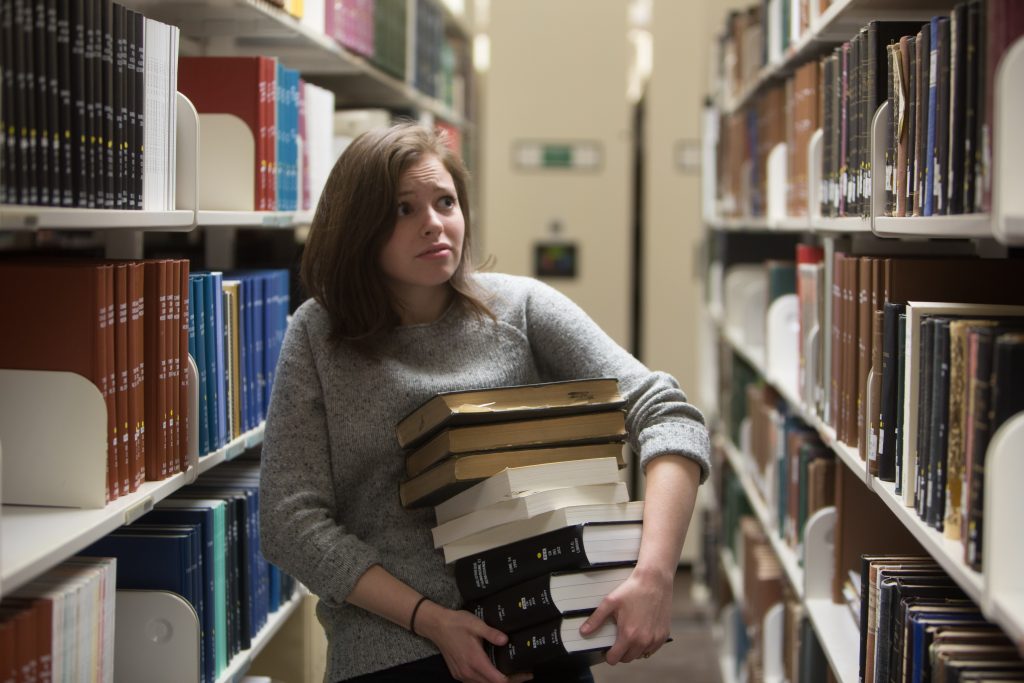
It’s something students across campus have heard professors and advisers say over and over again: Ask a librarian. The librarians can help.
But how, exactly?
Elementary education senior Hannah Webb, from Draper, Utah, said she was taking an expository writing class and feeling slightly overwhelmed when she first discovered the library’s resources. The education librarian attended her class, overviewed the library’s databases and offered further help to anyone with questions.
Webb had never written a research paper before, and she was having a hard time with her assignment. She decided to contact the librarian and set up an appointment.
HBLL communications manager Roger Layton said the library has about 150 full-time employees, but not all of them are referred to as “librarians.” Subject librarians are professional faculty who have a specialized degree (i.e., an MBA or a psychology degree) and a library degree. Their role is to help faculty and students in specialty areas, but Layton said few students ever come as far as their desks.
“Some people don’t have a lot of interaction with librarians, or they think their job is just to sit around at a desk and wait to check out books,” Layton said. “We want to communicate that librarians are here to actively help you with your research.”
Last year the library fielded about 63,000 reference questions, meaning someone approached a desk and asked about anything from NASA’s star charts to the location of the nearest restroom. There is no research on what percentage of students ask questions, but on average it means BYU’s 33,000 students ask a little less than two questions per year per student.
Layton said he believes several factors might contribute to the lack of questions, including the convenience of the internet and reluctance to ask for help.
“If you Google something, you Google a topic and you get 3 million hits,” Layton said. “If you walk into the library, they’ll say, ‘What’s your specialty? What’s your topic? And here are the exact resources you need to make your professor happy.’ So it saves you all that searching.”
Social science reference specialist Brian Wages said he has a simple process for helping students who come to him. First, he evaluates their needs. Then he thinks about what resources he can guide them to and what tools he can introduce to make the process easier.
Wages said even if students use the correct databases, they sometimes don’t get productive search results because they don’t use the right keywords. He often helps students go from terms they’re most familiar with to terms academics use. With complicated subjects, he helps students splice together information from multiple articles and create new research.
Librarians can also help with student research projects, Wages said. Students who intern for professors sometimes need to gather information on a topic or do a research project without knowing what’s already been done. Subject librarians can provide students with literature reviews and sources leading to existing research.
The more students Wages can help, the better, he said.
“I have seniors come in and say, ‘I’ve never come for help at the library,’ as though it’s a badge of honor,” Wages said. “And I think, ‘I’m so sorry. We could have saved you so much time and effort.'”
Webb said meeting with the librarian was a good experience. She found relevant information she wouldn’t have found in a simple Google search. The librarian also helped her structure a convincing argument for her paper.
“It definitely saved me time in the long run by a ton. She was so fast at doing it that by the time she had sent me a list of 20 sources, we had only been in there for 20 minutes,” Webb said. “I think it’s definitely worth it for a busy student.”




